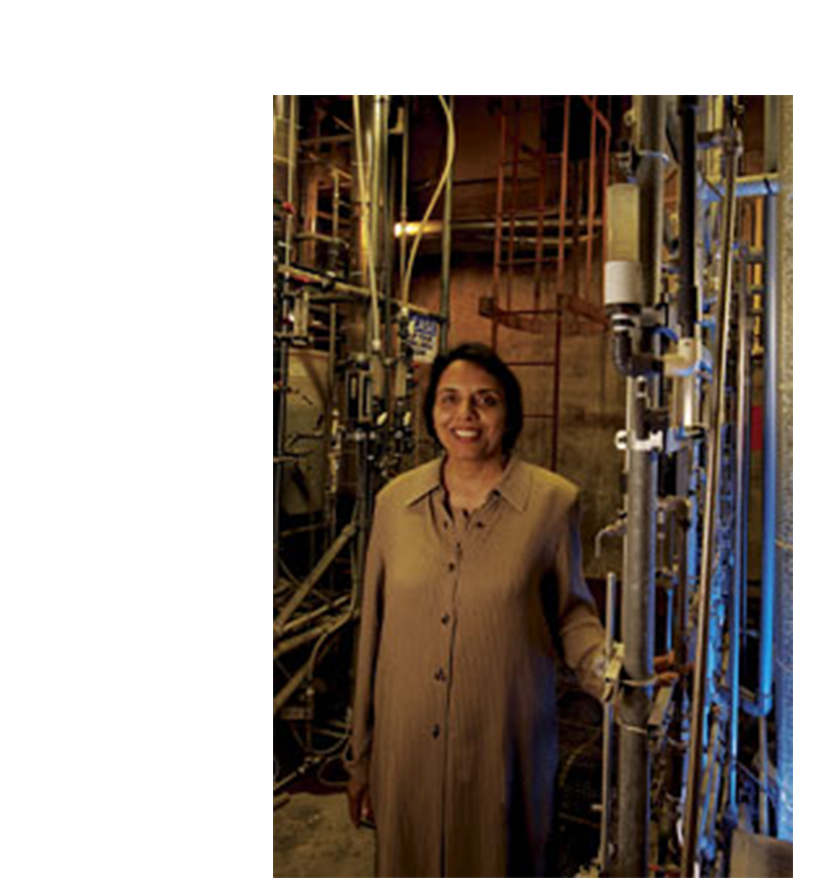Highlights of the Year

Small businesses can do great things.That’s the philosophy behind Metropolitan’s Regional/Small Business Program. The premise is fairly simple: reinvest ratepayer dollars in local economic development by committing a portion of contracting dollars to local and small businesses, give business owners the skills and tools to compete for public agency contracts, and then introduce them to the
people doing the hiring.
One person who has benefited from the program is Rubina Chaudhary, president of MARRS Services, a small engineering management firm with a big history at Metropolitan.
About 80 percent of the Santa Fe Springs company’s business is water or waste-water related. It has, in one capacity or another, been part of Metropolitan’s largest capital improvement projects, including the Inland Feeder pipeline project, the 800,000 acre-foot Diamond Valley Lake, and the recent ozone retrofit for the district’s treatment
plants.
In 2004, MARRS was the prime consultant on the refurbishment of the Colorado River Aqueduct, the first facelift in the 242-mile aqueduct’s 75-year history. MARRS oversaw the electrical, welding, concrete work, road improvements and pump upgrades.
In construction and professional consulting services, Metropolitan requires that any company not qualifying as small, but designated as the low bidder, must meet an assigned and verified percentage of subcontracting to small businesses. It’s a way for small businesses to get their foot in the door. After that, Rubina said, it’s up to the company to earn repeat business.
“For small businesses, sub-consulting is a wonderful way to get into an organization like Metropolitan,” she said. “It overcomes weaknesses of size and gives you an opportunity to be noticed. Then you have to stand on your own feet.
“Since the beginning it was very important that we not take on something we couldn’t handle,” she said.
After several subcontracting contracts, MARRS became prime consultant for Metropolitan’s Local Resources Program, which seeks to strengthen the region’s water supply by supporting groundwater recovery and storage programs.
Not an engineer herself, Rubina manages the marketing and public relations for her company, while others, including her husband, are in charge of the engineering know-how.
“Our industry is entirely relationship based,” Rubina said.“Client satisfaction is what matters most. I think people saw our potential, saw our sincerity and gave us the opportunity to prove ourselves, which grows with each day. When called on, and given the opportunity to compete, we do our best and more.”
Metropolitan’s goal in the beginning was to award 18 percent of district contracts to small businesses. Participation surpassed all expectations with about 40 percent of the contracts, and most of the ones under $25,000 going to small businesses.
Depending on small businesses is a smart investment, according to a study by the Public Administrative Review.
The 1998 study found that small business programs do not increase government costs and that a lack of competition on contracts can actually increase public sector costs. Metropolitan officials have identified a little more than $3 million in savings—because of an increase in competition.
Metropolitan has proven that the size of the business is not what determines quality.